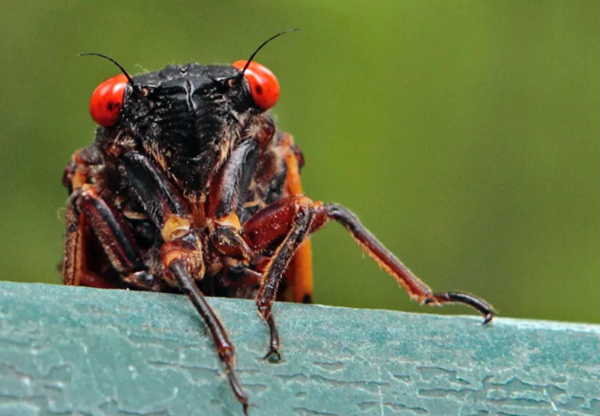The first reports of the impending cicada invasion have been heard in South Carolina.
Residents on Tuesday began calling the Newberry County sheriff's office wondering what the loud sirens or whining sounds were about.
In actuality, the first members of Brood XIX have begun digging out of the ground after a 13-year nap. It's a scene that will be repeated across more than a dozen states -- and part of western Kentucky -- in the coming days.
All of southern Illinois is included in Brood XIX's territory, along with about five western Kentucky counties that can expect the total cicada experience; Carlisle, McCracken, Marshall, Trigg, and Union.
Billions of the bugs will emerge locally as soon as the soil temperature warms to 64 degrees.
There's even more "buzz" about the bugs this year because of a once-in-a-lifetime double emergence of two separate and massive cicada broods, the 13-year Brood XIX and the 17-year Brood XIII. They'll emerge simultaneously for the first time since 1803.
Brood XIX is the largest by geographic reach across Missouri, Illinois, Arkansas, Kentucky and several other southeastern states, including South Carolina.
Brood XIII is more concentrated in Illinois, Iowa, and Wisconsin, but it's the largest in size by population, possibly in the trillions.
Six counties in central Illinois are ground zero where the two broods overlap, and will emerge side-by-side.
Despite some peoples' nervous anticipation of the invasion, there's little cause for concern aside from the noise. Cicadas don't bite or sting, and they don't bother garden plants or crops. Benefits of the cicada emergence are that they aerate the soil, and they provide a massive high-protein feast for animals, birds and fish.
Once they do emerge, it'll be a 3-4 week period for the bugs to frantically mate, lay eggs, and die. Then, for our region, it's a return to peace and quiet... until 2037.
Advertisement
First reports of cicada invasion in South Carolina; here soon?
Advertisement
Latest Local & Regional
Local & Regional
an hour ago
Local & Regional
an hour ago
Local & Regional
an hour ago
Local & Regional
an hour ago
Local & Regional
an hour ago
ADVERTISEMENT
Most Read >
ADVERTISEMENT
Latest Local & Regional
Local & Regional
an hour ago
Local & Regional
an hour ago
Local & Regional
an hour ago
Local & Regional
an hour ago
Local & Regional
an hour ago
Advertisement
ADVERTISEMENT





.png?lang=en-US&width=600&height=433&ext=.png)